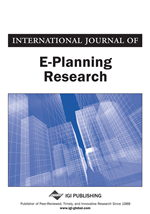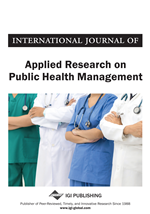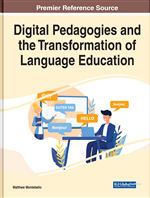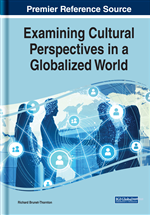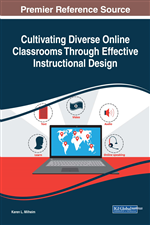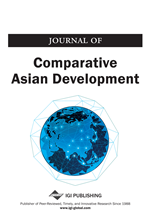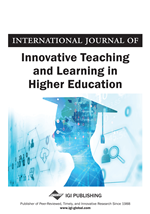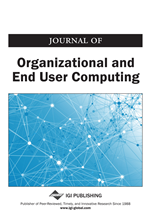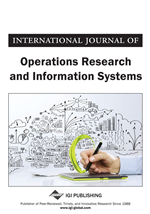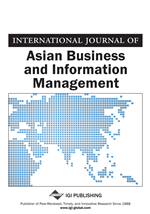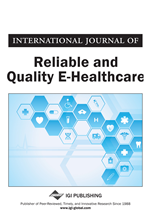Search
Results: 128
Remembering Michael Shute
Dedication to Michael Shute.
Published by: Memorial University of Newfoundland
Pandemic Participation
This article revisits the three foundational principles of Participatory Mapping practice identified in Good practices in participatory mapping. These include processes that strive for transparency, are unencumbered by time, and...
Published by: IGI Global
Introduction
Michael Kelly
Oct 07, 2014
Contents and author bios.
Published by: Memorial University of Newfoundland
Seeking the Wealth of Self
Michael George
Mar 16, 2022
Michael George teaches Religion and Culture, and Ethics at St. Thomas University in Fredericton, New Brunswick. He is interested in helping to promote the project of Integrative Bioethics, which he considers to be a possible...
Published by: Memorial University of Newfoundland
Remembering Philip McShane
Michael Vertin
Mar 16, 2022
Michael Vertin is Professor Emeritus of Philosophy, Study of Religion, and Theology at St. Michael’s College in the University of Toronto. He is a longtime student of Lonergan’s work and has edited four volumes of studies by...
Published by: Memorial University of Newfoundland
The Sinking of the Titanic
Heather Kelly
Apr 09, 2013
The Titanic was a British luxury passenger ship completed in 1912 that was one of the largest of its kind at the time. When built it was widely deemed to be virtually unsinkable, but the ship met with disaster after hitting an...
Published by: Memorial University of Newfoundland
Theoretical Implications of French Nuclear Diphthongisation
Stephanie Kelly
Aug 01, 2013
This article examines morphophonemic alternation between the high vowels Ii y u/ and their glide counterparts Ij II wI. By their very nature glides lend themselves to two possible analyses: the glide can appear either as a...
Published by: Atlantic Provinces Linguistic Association
JDMA Vol. 4 (2004) Download Entire Issue
Shute Michael
Jul 02, 2010
Published by: Memorial University of Newfoundland
Review Digital Health Care Perspectives, Applications, Cases
Michael Hall
Jan 01, 2022
Published by: IGI Global
Participatory Mapping and PGIS
Michael McCall
Jul 01, 2021
Applications of participatory mapping (PMapping) and PGIS to the mapping of local spatial knowledge are expanding; therefore, updated ethics and good practice improvements are needed. The intention here is to secern, or...
Published by: IGI Global
Mobile-Assisted Language Learning
Michael Sletten
May 14, 2021
Learning a second language is challenging for anyone worldwide. When trying to learn a second language in a remote area of the world or under circumstances that do not allow for face-to-face learning, it becomes even more...
Published by: IGI Global
Psychological Distance and Culture
Michael Roberts
Dec 27, 2019
This chapter introduces psychological distance into cultural studies as an alternative way of conceptualizing individual differences. Unlike most cross-cultural frameworks that are at the group level, psychological distance...
Business & Organizational Research Business and Management Human Aspects of Business Social Sciences and Humanities
Published by: IGI Global
Culture and Communication Online
This chapter discusses the challenges and opportunities encountered by international and non-native language learners participating in distance education. With the growth of online learning and the internationalization of...
Published by: IGI Global
China's Infrastructure Financing and the Role of Infrastructure in Awakening African Economies
Michael Ehizuelen
Jul 01, 2021
African economies, through Agenda 2063, recognize that developing infrastructure – transport, electricity, energy, water, and e-connectivity – will be critical for the region to assume a lasting place in the global economic...
Published by: IGI Global
LGBT College Student Career Development
LGBT college students need mentorship regarding their career development from their faculty members. This paper provides an informed approach, grounded in Social Cognitive Career Theory and supported by empirical research, for...
Published by: IGI Global
The Agglomeration Mechanism of Network Emerging E-Eommerce Industry Based on Social Science
Network emerging e-commerce refers to the development of wireless broadband technology, smart terminal technology, near-field network, etc. as the driving force. It is the emerging e-commerce represented by the continuous...
Published by: IGI Global
Identification of Potential Mpro Inhibitors for the Treatment of COVID-19 by Targeted Covalent Inhibition
Dushyant Patel, Divya Teli, Ashish Kanhed, Nirav Patel, Bhavik Shah, Amisha Vora, Mahesh Chhabria, Mange Yadav
Apr 01, 2021
A novel coronavirus is the causative agent identified for the current COVID-19 outbreak. Globally, more than 43 million people have been infected by this virus. The total number of deaths has surpassed 1.6 million across 210...
Published by: IGI Global
A Methodological Approach to Assessment and Reporting of the Model Adequacy in Simulation Studies
Assessment and Reporting of Model Adequacy is an important step in the simulation modelling process. It stipulates the level of precision and accuracy, which are important features of the model predictions. In an academic...
Published by: IGI Global
Stochastic Modelling of Weather-Related Transmission Line Outages
The physical environment around transmission lines plays a major role in the resulting reliability of the power network. The inclusion of weather in the failure and repair process will lead to realistic modelling of the power...
Published by: IGI Global
Stochastic Model for Preventing Blackouts
Power system blackouts cause huge financial losses for the society and power utilities. Two types of blackouts have been identified. One involving load loss due to transmission lines reaching its limits and other involving...
Published by: IGI Global
Fallacies in Decision Making From an Asian Perspective
Decision making is integral for organizational success, and for that, the basic tenet is rationality. Yet, no decisions in the workplace are purely rational. Irrational decision-making behaviours are the irrational beliefs of...
Published by: IGI Global
Reliability Analysis of Keith Centrifuge at a Meat Processing Plant in Windhoek, Namibia
Critical equipment failures in a meat processing plant can shut down the business unit, resulting in a loss of output and financial loss. Furthermore, many stakeholders face risks because of equipment failures. The purpose of...
Published by: IGI Global
Establishing and Testing a Quantitative Measure for Evolving Third-Place Characteristics
Third places offer and promote social experiences beneficial for building interpersonal relationships. This study has two goals: 1) establish a scale that tests if an environment is characteristic of third place characteristics...
Published by: IGI Global
Uncertainty From Sampling
ISO/IEC 17025:2017 and ISO 15189:2012 specify the requirements for the competence of laboratories. The former refers to laboratories in general, whose activities include testing, calibration and sampling followed by testing or...
Published by: IGI Global
|
|< |
< |
1 |

